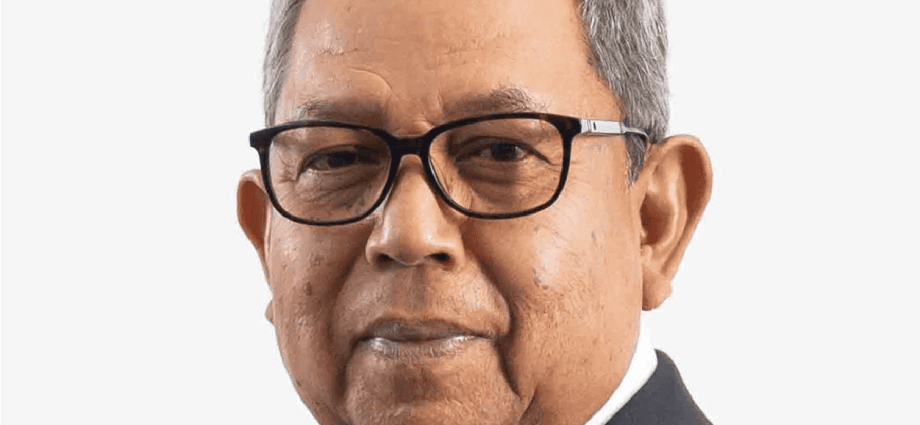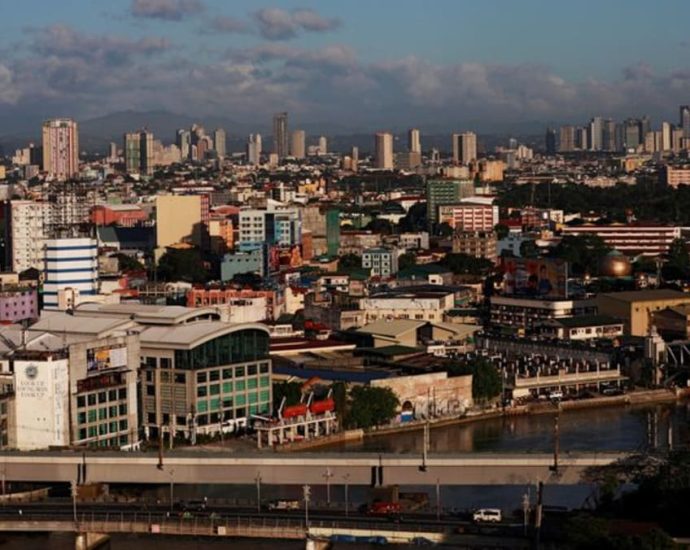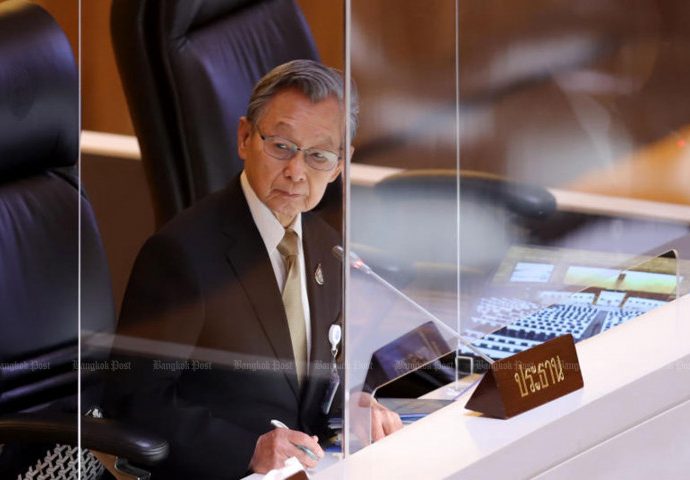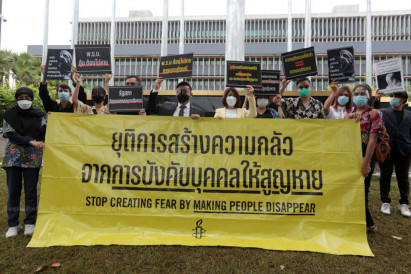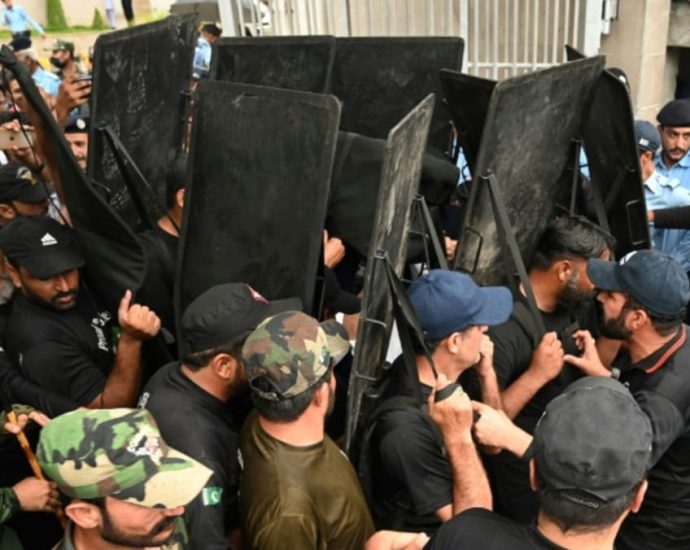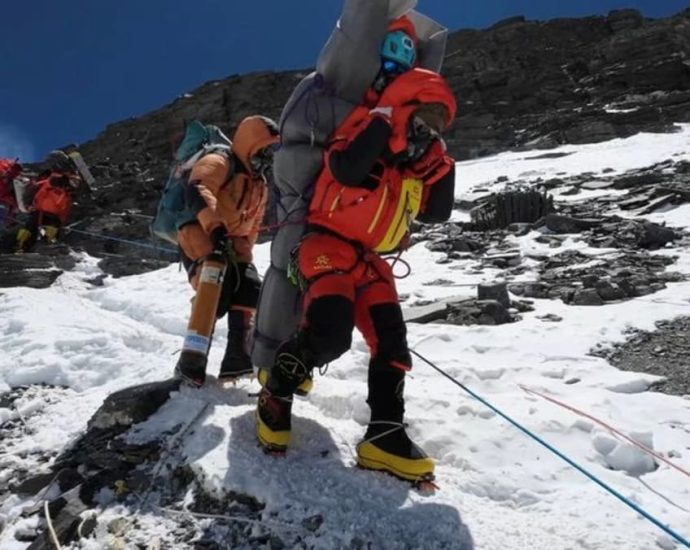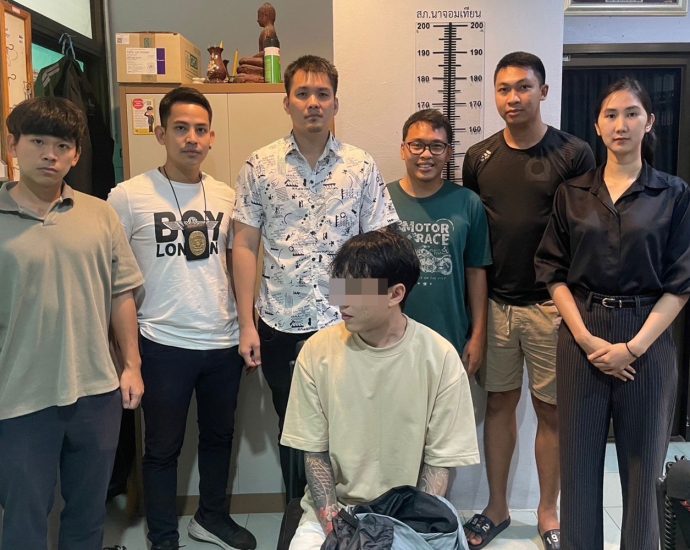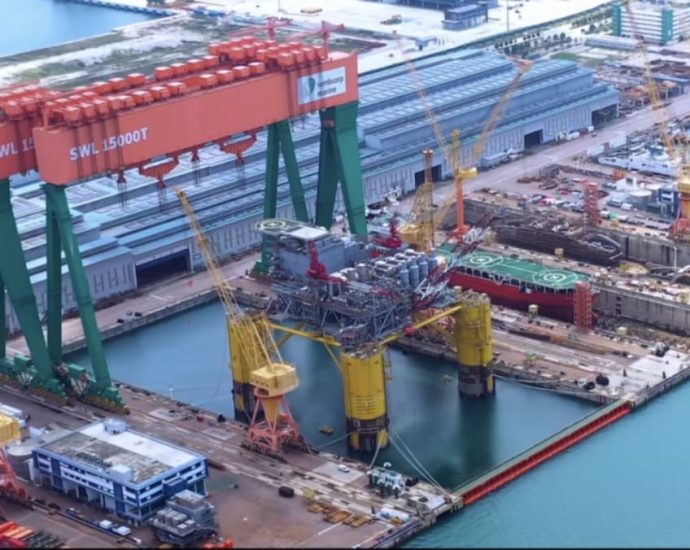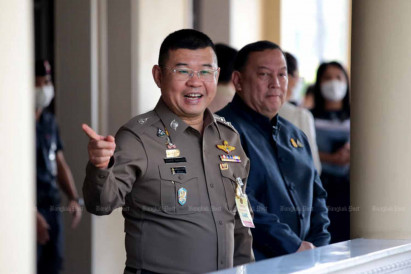SC seeks to transform agri sector via fintech, alternative financing
Access to finance is critical to agriculture’s future, said SC chairman
Capital market could help Malaysia achieve its food security agenda
The Securities Commission Malaysia (SC) encourages the broader adoption of financial technology (fintech) in agriculture to help achieve the country’s food security agenda.
SC Chairman Awang Adek Hussin (pic) said access to finance…Continue Reading
Philippine lawmakers approve US$8.9 billion sovereign wealth fund
MANILA: Philippine lawmakers approved the creation of an US$8.9 billion sovereign wealth fund on Wednesday (May 31) to boost growth and cut poverty, but critics insisted it was a “scam” and should be scrapped. President Ferdinand Marcos Jr had called for a swift passage of the bill, filed by hisContinue Reading
Chuan: MFP-Pheu Thai tussle ânot surprisingâ
Former parliament president says whoever holds speaker post must serve all parties’ interests

The ongoing tussle between Move Forward and Pheu Thai — the nation’s two biggest parties — over who should hold the parliament president’s post is hardly surprising since both are not far apart in the number of seats they won in the polls, according to former parliament president Chuan Leekpai.
Each party is sticking to its demand to propose a candidate for the seat in a vote that is expected to be held on July 26, eight days before the new prime minister is elected in parliament.
The Move Forward Party (MFP) won 151 MP seats, just 10 more than Pheu Thai. Naturally, both feel they have a legitimate right to propose one of their own for the role of speaker of the House of representatives, who also serves as the parliament president.
More Forward has insisted that the tradition of having the head of the legislative branch come from the biggest party should be followed. The party has many draft laws ready that it wants to see pushed through for parliamentary debate with the help of the parliament president. Having someone in the chair from their own ranks would ensure this happens, according to the party.
On the other hand, Pheu Thai argues there should be some sort of trade-off. As Move Forward is set to land the prime ministerial post, the role of parliamentary president should be handed over to Pheu Thai.
The MFP is perceived as trying to secure the presidency in order to push its own legislative agenda. Nonetheless, critics say the parliament president should serve not just one agenda, but all parties.
Mr Chuan, also a former leader of the Democrat Party, said it was incorrect to assume the post of parliamentary president can be exploited for partisan interests.
A parliamentary president is also less powerful than before. For instance, the president can no longer nominate a prime ministerial candidate of their own choosing for royal endorsement; the president can only submit the name of a prime minister elected by parliament to be royally endorsed.
Generally, the head of the legislative branch must remain impartial in executing their duty. They must relinquish the role of being an executive of their political party before taking up the presidency, said Mr Chuan.
The parliamentary president must also be well-versed in law and parliament regulations. “They can’t do as they please or hold up a draft bill. There are rules they must abide by,” he said.
Mr Chuan, 84, also clarified that when he held the parliament presidency previously, it was not he but his deputy at the time, Suchart Tancharoen, who refused to put forward a draft bill to amend Section 112 of the Criminal Code — the lese-majeste law — for parliamentary debate, deeming it unconstitutional.
The draft bill, sponsored by Move Forward, was sent back to the party for review but went no further. Most people have come to blame Mr Chuan for not allowing a debate to go ahead.
Meanwhile, Pheu Thai leader Cholnan Srikaew said on Wednesday that the issue of who occupies the speaker’s chair would not drive a wedge between his party and MFP.
Dr Cholnan is reportedly one of three Pheu Thai senior members who might be considered for the parliament president role. Although Pheu Thai has not yet released any names, the other likely candidates are Mr Suchart and Chaturon Chaisaeng.
Panel to ensure anti-torture law compliance
Wissanu says centralised database on cases likely to be set up to ensure transparency

The government has set up a panel to lay down regulations to ensure state agencies comply with the Prevention and Suppression of Torture and Enforced Disappearance Act.
The regulations must be in place to ensure standard operating procedures, Deputy Prime Minister Wissanu Krea-ngam said on Wednesday before chairing the first meeting of the national committee on anti-torture.
The move follows a Constitutional Court ruling earlier this month that the executive decree postponing enforcement of Sections 22–25 of the law until Oct 1 violated Section 172 of the constitution.
The sections involve measures to prevent abuse and harassment and keep the use of power by authorities in check, such as requiring police to use body cameras during a search and arrest, as well as producing reports for local officials and prosecutors.
Set up under the law, the committee, headed by Mr Wissanu, comprises armed forces leaders, permanent secretaries from various ministries and specialists.
Mr Wissanu, the caretaker government’s legal expert, said the regulations would also deal with data storage, such as who is authorised to store data and who can access and make use of it. The data is likely to be kept in a central database rather than separately by each agency, he added.
He said the regulations would ease enforcement of the law that requires officials to record searches and arrests, the questioning of a suspect, and yo store the data until the case is finalised.
Mr Wissanu said the government had approved a budget for operations including the procurement of cameras. Bidding will be held to prevent price collusion.
He said the caretaker government did not have to take responsibility for the enforcement delay following the court ruling, saying the term of the government that issued the decree ended in March when the House of Representatives was dissolved.
While any individual minister in charge of initiating the provisions may step down, the caretaker government itself cannot resign as it must carry on its duty to avoid a power vacuum, he explained.
According to the deputy premier, those who plan to hold the cabinet accountable may proceed but he could not figure out on what the basis such complaints would be filed.
Earlier, Somchai Srisutthiyakorn, chief strategist of the Seri Ruam Thai Party, suggested a petition should be lodged with the National Anti-Corruption Commission against the administration of Gen Prayut Chan-o-cha over the decree.
Pakistan ex-PM Khan in court as rights watchdog issues warning
Since he was ousted from office in a no-confidence vote last spring, Khan has waged an unprecedented campaign of defiance against Pakistan’s powerful military establishment, which analysts say was behind his rise and fall from power. His arrest was widely seen as payback ordered by top brass after he repeatedContinue Reading
Nepali sherpas save Malaysian climber in rare Everest ‘death zone’ rescue
Gelje said he convinced his Chinese client to give up his summit attempt and descend the mountain, saying it was important for him to rescue the climber. “Saving one life is more important than praying at the monastery,” said Gelje, a devout Buddhist. Tashi Lakhpa Sherpa of the Seven SummitContinue Reading
Nepali sherpa saves Malaysian climber in rare Everest ‘death zone’ rescue
Gelje said he convinced his Chinese client to give up his summit attempt and descend the mountain, saying it was important for him to rescue the climber. “Saving one life is more important than praying at the monastery,” said Gelje, a devout Buddhist. Tashi Lakhpa Sherpa of the Seven SummitContinue Reading
Korean drug suspect arrested in Chon Buri
Police in Seoul sought Thai authorities’ help to track down dealer
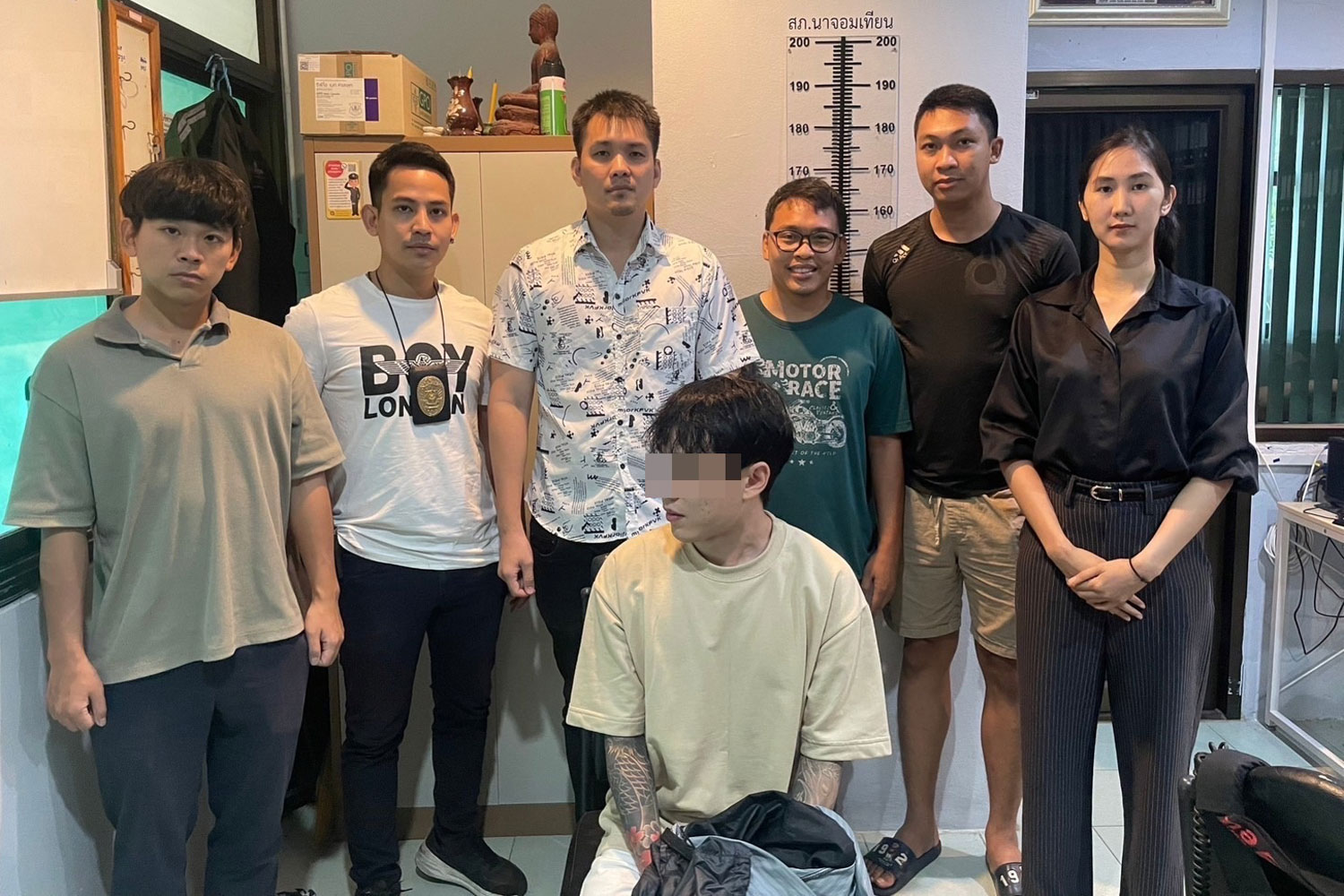
CHON BURI: A South Korean man wanted in his home country for drug offences has been arrested in Sattahip district of this tourist province, police said on Wednesday.
Immigration police apprehended the man, identified only as Kim, 26, at a luxury housing estate in tambon Na Jomtien, said Pol Lt Col Pakphumpipat Sajjaphan, commissioner of the Immigration Bureau (IB).
Between June last year and March this year, South Korean drug suppression police carried out crackdowns on illicit drugs at entertainment venues in the Gangnam and Itaewon districts of Seoul and arrested 70 people, including dealers and users, said the IB chief. Various kinds of drugs were seized along with cash equivalent to 17 million baht.
South Korean investigators found that one of the dealers they were targeting, Mr Kim, had fled to Thailand. Drug suppression authorities in Seoul obtained an Interpol Red Notice for his arrest and sought cooperation from Thailand to help find him, said Pol Lt col Pakphumpipat.
Immigration police found that Mr Kim had entered Thailand on a tourist visa on July 13 last year and was staying a luxury housing estate in tambon Na Jomtien.
The investigators tracked him there and he was handed over to Na Jomtien police station for legal proceedings.
Pol Lt Gen Pakphumpipat said the investigation showed that Mr Kim used the Telegram app to communicate with his customers, and delivered drugs at entertainment venues. The suspect had also smuggled illicit drugs from Thailand to South Korea, he said.

Pol Lt Col Pakphumpipat Sajjaphan, commissioner of the Immigration Bureau, announces the arrest of a South Korean drug suspect at a media briefing in Chon Buri on Wednesday. (Photo: Chaiyot Pupattanapong)
CPIB investigating marine engineering firm Seatrium over alleged corruption offences in Brazil
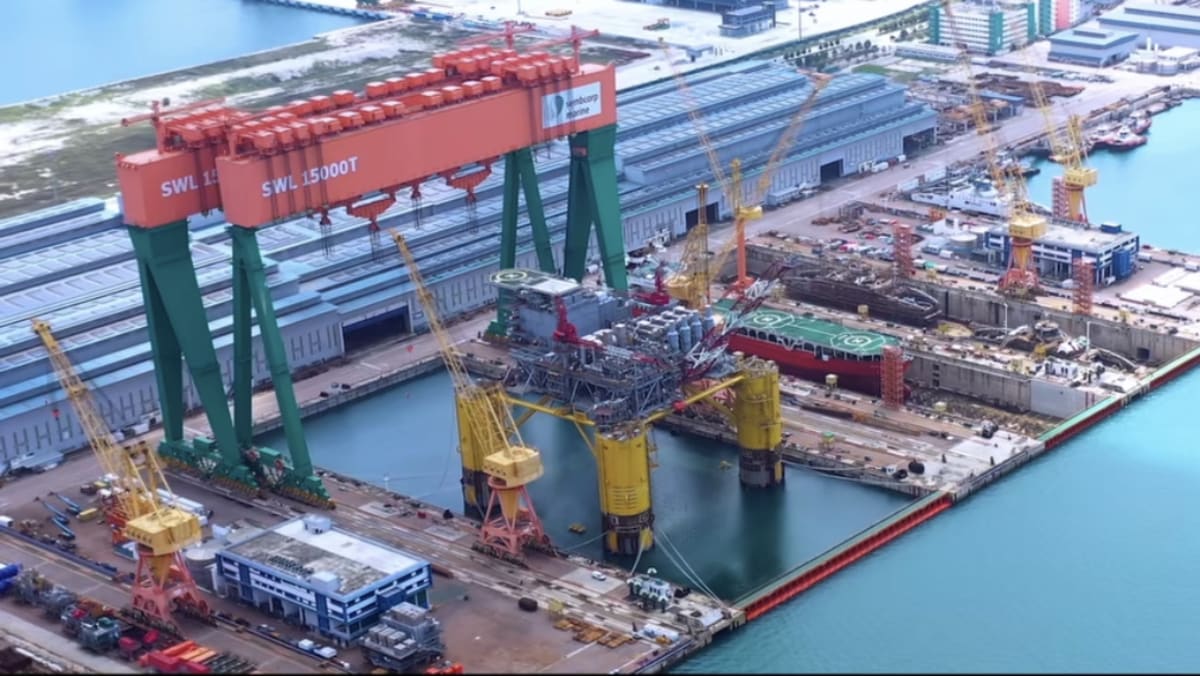
In January, six former senior management staff members of KOM were given stern warnings by CPIB over the Petrobras case.
The warnings were in lieu of prosecution for offences punishable under the Prevention of Corruption Act.
The offences relate to bribe payments to Petrobras officials, pertaining to rigs-building contracts which Petrobras or its related companies had awarded to KOM.
The six former employees were not prosecuted over the multimillion-dollar bribery case due to insufficient evidence to establish their guilt beyond a reasonable doubt, said Minister in the Prime Minister’s Office Indranee Rajah in Parliament on Feb 6.
“Simply put, there is a lack of sufficient evidence, either documentary or through witnesses, which would establish any criminal charge beyond a reasonable doubt against a specific individual,” she said then.
In its statement on Wednesday, CPIB said it “investigates without fear” and would not hesitate to take action against any parties involved in corrupt activities.
Highway bribery long entrenched, police chief admits

National police chief Pol Gen Damrongsak Kittiprapas has admitted the practice of highway police demanding and taking bribes from truck operators has long been in existence.
It had “exploded” on public awareness recently only after details were posted on social media, Pol Gen Damrongsak said on Wednesday.
He was speaking after Pol Lt Gen Jirabhop Bhuridej, the Central Investigation Bureau chief, signed an order reassigning Highway Police commander Pol Maj Gen Ekarat Limsangkas to the CIB operations centre.
The move followed reports on social media that drivers of overloaded lorries were not being arrested at highway weighbridges if they had one of several stickers on their vehicles showing bribes had been paid.
Pol Maj Gen Jaroonkiat Pankaew, commander of the Anti-Corruption Division, was assigned to concurrently act as commander of the Highway Police Division.
Wiroj Lakkhanaadisorn, a Move Forward Party list MP-elect, last week posted on social media that he was compiling evidence about the racket. He claimed overloaded trucks with special stickers were not being detained or the drivers arrested at weighbridges.
Pol Gen Damrongsak said, “Bribe-paid stickers have long been in use, despite suppression efforts. The matter has become explosive because it has been brought to the attention of society. All agencies concerned are now rushing to try and find out how many of them are currently being used.”
He said he had instructed the Office of the Inspector-General and the CIB to jointly investigate the matter.
Pol Gen Damrongsak said the transfer of the Highway Police Division commander was to ensure the investigation could be carried out with transparency. The investigation would cover both the bribe givers, who might be the transport operators, and those who received the payments, who might be state officials or their middle-men.
State officials found involved would face both criminal and disciplinary action, he said.
Police found guilty of involvement would face consequences, he said, adding that this year, to date, about 79 police officers had been sacked after being found involved in dishonest activities.
The national police chief said he had earlier already issued instructions for police to take tough action against overloaded lorries. Now that the matter had become big news, he would issue an official order for them to be more strict in enforcing legal weight limits.
A special committee would be set up to keep watch for those who turn a blind eye, or are lax in enforcing the traffic law, he said.
“The story about bribe-paid stickers is old, but has been posted on social media. Some posters may be ill intentioned toward police. I would like people to understand that police work hard from every aspect,” Pol Gen Damrongsak said.

